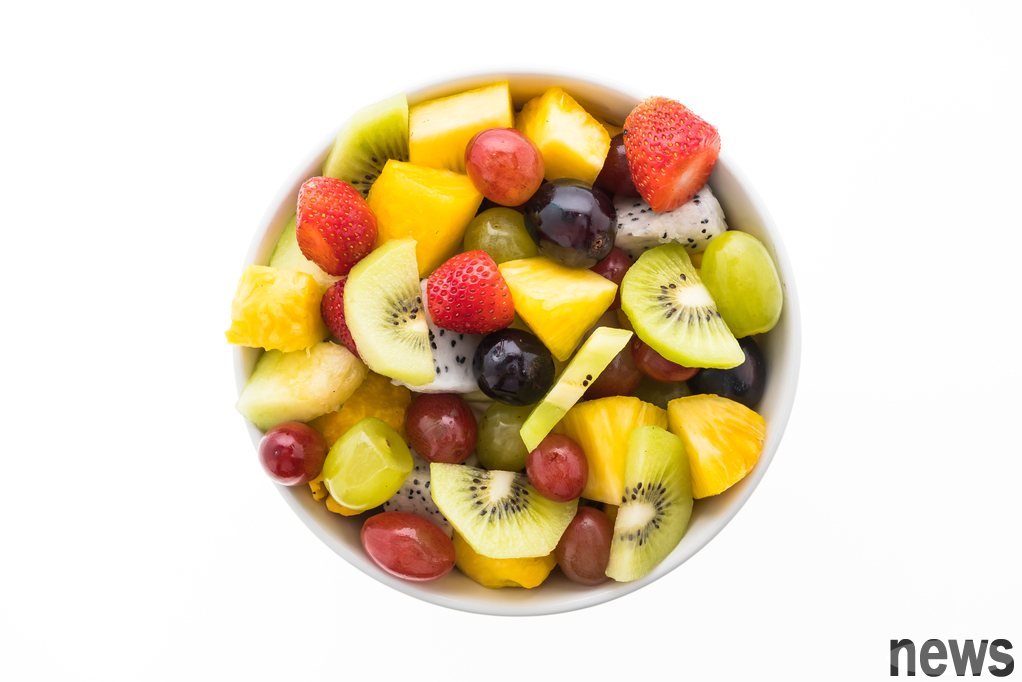
We often see cut fruit storage in night markets, and convenience stores also sell cut boxes of fruits. These are convenient channels for foreign foodies and single-body people to replenish fruits. However, the doctor pointed out that after the fruit is cut, the nutritional value begins to decrease! However, the types of watermelon and mango will increase after cutting, which is a rare exception.
After fruit cutting, antioxidant nutrients decreased a lot,Lu Li, deputy director of the health clinic, shared an article in the face powder "Lu doctor's health classroom", a netizen asked: "Will the vitamin C content decrease after being left for a long time?" Lu Li, citing a study published in the Journal of Agricultural and Food Chemistry in 2006, pointed out that the value of fruit nutrition will indeed change due to intensive and non-existence.
Research on pears, mangos, cantaloupes, and watermelons , strawberries, strange fruits and other fruits were stored in 5°C environment for 9 days. The content of "vitamin C, vermicelli, and total phenol" (all of which have "antioxidation" effects) during this period showed that most fruits will have a lot of antioxidant nutrients during the 9 days after "cut into small pieces", and vitamin C and vermicelli will be reduced by "25%" at most, and the vermicelli of vermicelli will also be reduced by "light" and the vermicelli of vermicelli will also be reduced. However, the types of slicing watermelon and mango will increase. The storage period of strange fruits after cutting should not exceed 6 days, and the storage period of other fruits will not exceed 9 days.
Overall, vitamin C and sausages will be reduced in fruits that have been cut, and the reduction can reach "1/4". This is because the more fruits touch the air, the easier it is to consume nutrients. The oxidized fruits not only have a poor taste, but also have a large amount of vitamin C, which greatly reduces the nutritional value. Take Apple as an example. After washing and scrubing, it is eaten with the highest nutritional content. If peeling, cutting, soaking in salt water, refrigerating, and taking it out the next day and eating it into your stomach, the nutritional value is only half.
Fruit "whole-preserved" nutrients can be preservedLu Li pointed out that if most fruits are "whole-preserved", their antioxidant nutrients will not be lost much after 9 days. Even the vitamin C of mango and strawberries will increase after 9 days, which may be related to the increase in the ripening of the fruit.
So if the fruit is not eaten immediately after buying it, it is recommended to buy "complete and uncut" fruit and store it in the refrigerator, and the storage time should not exceed 1 week.
5 points for fruit preservation1. Not all fruits can be stored in the refrigerator
Depending on the characteristics of the fruit, some need to be stored in refrigerated, and some need to be stored in room temperature. The temperature and humidity will cause a big difference to the fruit.
Put the hot fruits such as melons, avocados, pears and bananas. Put them in the refrigerator: apples, peaches, pears, citrus, etc. However, Apple contains ethylene ripening hormone and needs to be placed in the refrigerator "single" and cannot be put together with other fruits, otherwise it will accelerate the ripening of the same fruit.
2. If the fruit is stored in the refrigerator, put it in an independent space as much as possible to avoid being stained with fish, meat, chicken eggs, various fresh foods and meat.
3. Fruits that have been cut or have been removed can be covered with sealed containers or insulating film and then placed in the refrigerator to maintain a longer freshness. But they should be finished as soon as possible.
4. First cut the fruits that are refrigerated in the refrigerator. The water-soluble fiber, antioxidant nutrients, vitamin C and other nutrients will be lost. It is best to finish them within 6 days.
5. Do not clean the fruits that need to be refrigerated first. Put them in the refrigerator after they are packed in plastic bags or paper bags to prevent the evaporation of moisture and cause the peel to shrink or soften. It is best to make a few small holes in plastic bags to improve air circulation to prevent the accumulation of water and promote the growth of bacteria and microorganisms.